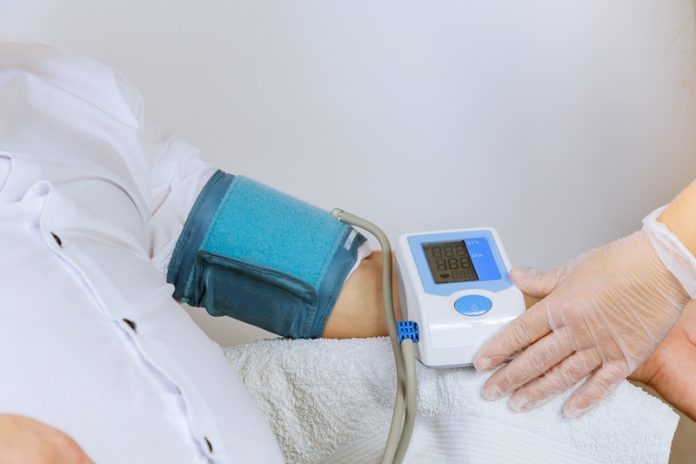
In an unprecedented move, the World Health Organization (WHO) has released its inaugural report on the global impacts of high blood pressure, revealing alarming statistics alongside recommendations on mitigating this pervasive silent killer.
The report, disclosed during the 78th Session of the United Nations General Assembly, unveils that nearly 80% of individuals with hypertension are not sufficiently treated.
However, through enhanced coverage and management, it’s projected that 76 million deaths could be prevented between 2023 and 2050.
Hypertension: A Worldwide Public Health Menace
Hypertension, a condition affecting one-third of adults globally, poses severe health risks, including strokes, heart attacks, and kidney damage.
The report discloses a disconcerting rise in hypertension cases from 650 million in 1990 to 1.3 billion in 2019, spotlighting an urgent need for a more robust, widespread intervention, especially in low- and middle-income countries where more than 75% of hypertension-afflicted adults reside.
Addressing Risk Factors and Lifestyle Modifications
The risk factors contributing to hypertension encompass both non-modifiable aspects like genetics and age, and modifiable ones, including diet and lifestyle.
Initiatives emphasizing lifestyle alterations, such as adopting a nutritious diet, ceasing tobacco use, and integrating more physical activity, have been recognized as instrumental in managing and potentially lowering high blood pressure.
Economic and Health Payoffs of Hypertension Management
With an 18:1 benefit-to-cost ratio, preventive, early detection, and efficacious management strategies against hypertension are identified as among the most economically viable health interventions.
Dr. Tedros Adhanom Ghebreyesus, WHO Director-General, emphasized the dire need to amplify, prioritize, and fund hypertension control programs comprehensively.
The underlying concept leans towards strengthening global health frameworks, channeling resources towards equitable and resilient health systems rooted in primary health care.
Potent Impacts of Effective Hypertension Treatment
By amplifying the efficacy of hypertension treatment to par with high-performing countries, it is estimated that 76 million deaths, 120 million strokes, 79 million heart attacks, and 17 million heart failure cases could be averted from now until 2050.
Michael R. Bloomberg, WHO Global Ambassador for Noncommunicable Diseases and Injuries, accentuated that administering hypertension through primary health care would not only save countless lives but also economize billions annually.
WHO’s HEARTS Technical Package: A Practical Solution
WHO’s HEARTS technical package, including their guideline for pharmacological treatment of hypertension, provides pragmatic steps to deliver effective hypertension care, ensuring safe, accessible, and affordable treatment via low-cost generic medications.
Implementations of these strategies have demonstrated success in various countries, illustrating the global feasibility of impactful hypertension management.
Five Key Components for Efficient Hypertension Care
The report outlines five crucial components for effective hypertension care:
- Protocol: Utilizing specific treatment protocols to enhance care and compliance.
- Medication and Equipment Supply: Ensuring consistent, affordable access to essential medication and equipment.
- Team-based Care: A collaborative team effort to manage blood pressure effectively.
- Patient-centered Services: Implementing patient-friendly services that mitigate care barriers.
- Information Systems: Developing straightforward, user-friendly information systems to facilitate efficient patient-level data recording and support the swift scale-up of quality care.
Dr. Tom Frieden, President & CEO of Resolve to Save Lives, underscored that achieving effective hypertension care is financially and logistically feasible, but requires the committed engagement of global governments.
The WHO report not only shines a light on the pervasive, escalating issue of hypertension worldwide but also proposes a tangible, economically sound roadmap towards minimizing its deadly impact on global health.
The strategies presented accentuate a collective, integrative approach, spanning from the individual lifestyle alterations to broad, system-wide interventions, to thwart the perilous trajectory of this silent, global killer.
If you care about blood pressure, please read studies about blood pressure drug that may increase risk of sudden cardiac arrest, and these teas could help reduce high blood pressure.
For more information about health, please see recent studies about nutrient that could strongly lower high blood pressure, and results showing this novel antioxidant may help reverse blood vessels aging by 20 years.
Follow us on Twitter for more articles about this topic.
Copyright © 2023 Knowridge Science Report. All rights reserved.



